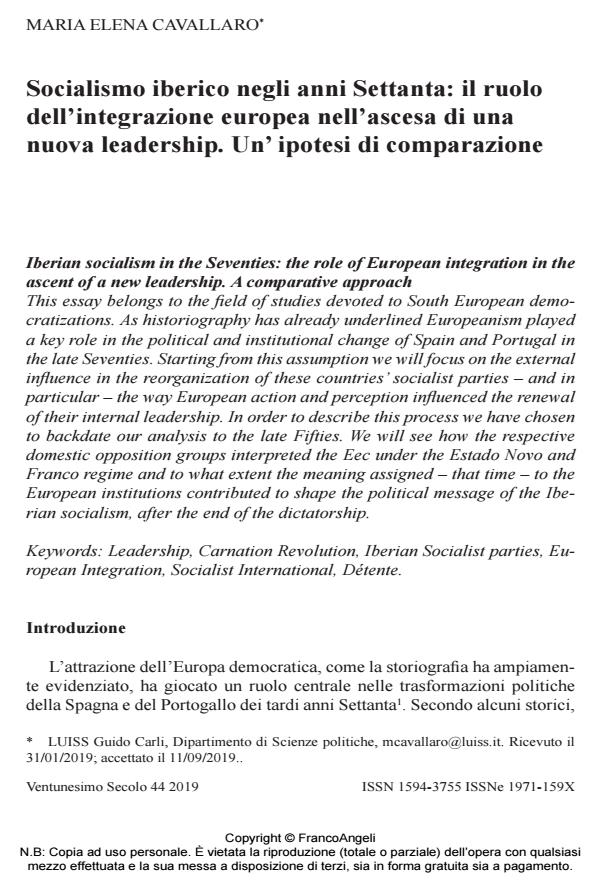Iberian socialism in the Seventies: the role of European integration in the ascent of a new leadership. A comparative approach
Journal title VENTUNESIMO SECOLO
Author/s Maria Elena Cavallaro
Publishing Year 2019 Issue 2019/44
Language Italian Pages 24 P. 129-152 File size 200 KB
DOI 10.3280/XXI2019-044007
DOI is like a bar code for intellectual property: to have more infomation
click here
Below, you can see the article first page
If you want to buy this article in PDF format, you can do it, following the instructions to buy download credits

FrancoAngeli is member of Publishers International Linking Association, Inc (PILA), a not-for-profit association which run the CrossRef service enabling links to and from online scholarly content.
This essay belongs to the fi eld of studies devoted to South European democratizations. As historiography has already underlined Europeanism played a key role in the political and institutional change of Spain and Portugal in the late Seventies. Starting from this assumption we will focus on the external infl uence in the reorganization of these countries’ socialist parties - and in particular - the way European action and perception infl uenced the renewal of their internal leadership. In order to describe this process we have chosen to backdate our analysis to the late Fifties. We will see how the respective domestic opposition groups interpreted the Eec under the Estado Novo and Franco regime and to what extent the meaning assigned - that time - to the European institutions contributed to shape the political message of the Iberian socialism, after the end of the dictatorship.
Keywords: Leadership, Carnation Revolution, Iberian Socialist parties, European Integration, Socialist International, Détente
Maria Elena Cavallaro, Socialismo iberico negli anni Settanta: il ruolo dell’integrazione europea nell’ascesa di una nuova leadership. Un’ ipotesi di comparazione in "VENTUNESIMO SECOLO" 44/2019, pp 129-152, DOI: 10.3280/XXI2019-044007